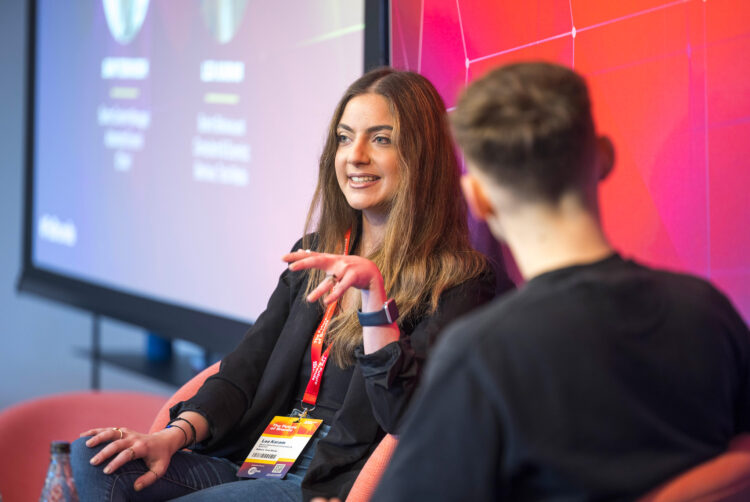From ChatGPT to Dr Who: how Human AI and behavioural science can improve campaigns


With both Google and Meta announcing generative AI tools for marketers, and agencies already integrating the technology into their media research and planning, generative AI is on every marketers mind. But advertisers shouldn’t forget about the advances in predictive AI, too.
That was the message at The Future of Brands event in London last month, when Lea Karam, senior behavioural consultant and scientist at behavioural planning and media buying agency TotalMedia, urged marketers to consider the possibilities of AI-driven technologies beyond ChatGPT.
Karam said: “In terms of generative AI, ChatGPT is great for gathering information quite quickly. But in terms of brand market, there are so many different kinds of databases you can access that can give even richer information on a bespoke project rather than on a general level.”
One important application of predictive AI is the ability to identify key trends and attitudes among target audiences. She commented: “There’s a lot of data out there and what machine learning and natural language processing enables you to do is to take billions of data points and to be able to really understand the top themes out there in the market, as well as the sentiment that people and specific ‘tribes’ have towards them.”
According to Karam, behavioural science and HumanAI, a decentralised system that uses personal data to create a “global user-centric artificial intelligence”, have a major role to play in rendering these insights valuable to marketers. Based on the analyses of natural language texts, HumanAI offers predictions about the personalities and socio-emotional skills of people, looking at personality traits such as agreeableness, openness, conscientiousness and extraversion.
As a case study, she cited a campaign to promote a free trial period for a streaming service. “We wanted to understand the personality traits of people watching certain shows that they were going to launch. So, as one example, we looked at the personality traits of viewers watching Dr Who and then created content according to that.”
By drawing on behavioural science and insights delivered by HumanAI, TotalMedia determined Dr Who fans tended to be very low on the trait of ‘extraversion’ and were much more introverted.
As a result, the campaign incorporated phrases which were determined to resonate more with Dr Who fans, such as ‘escape the world’, and changed upper case type to lowercase in the copy. According to Karam, these adjustments increased click-through-rates by nearly 4x (280%).
She elaborated: “Brands need to get more data but also make sense of that data in a way that’s human first. HumanAI going to keep booming because, with time, we can’t really ignore the impact AI and behavioural science is going to have on the industry.”
Karam spoke to Sam Tidmarsh, senior content manager at Adwanted Events, the events partner for The Media Leader. All reporting from our events is independent unless clearly marked as “Partner Content”.
